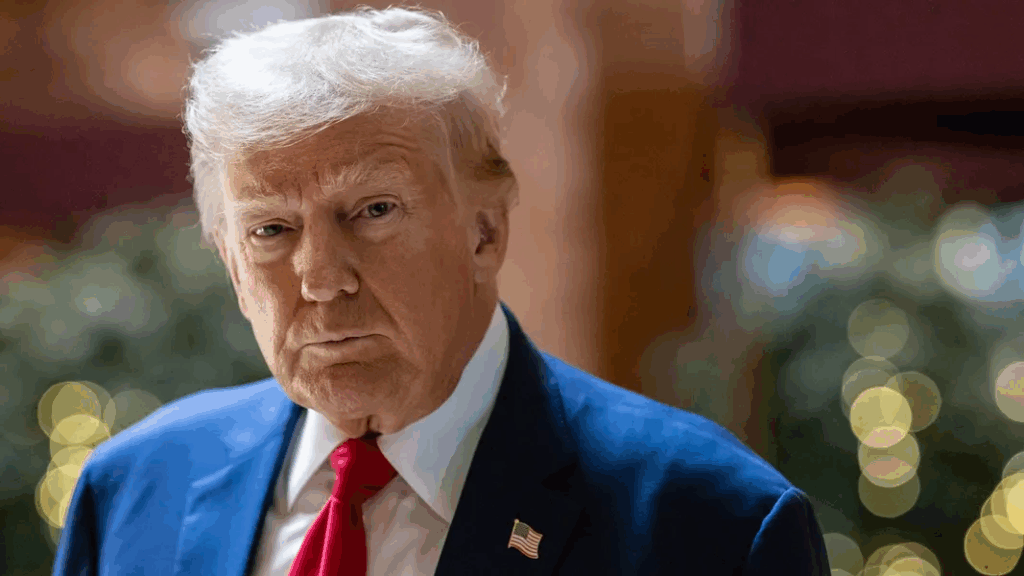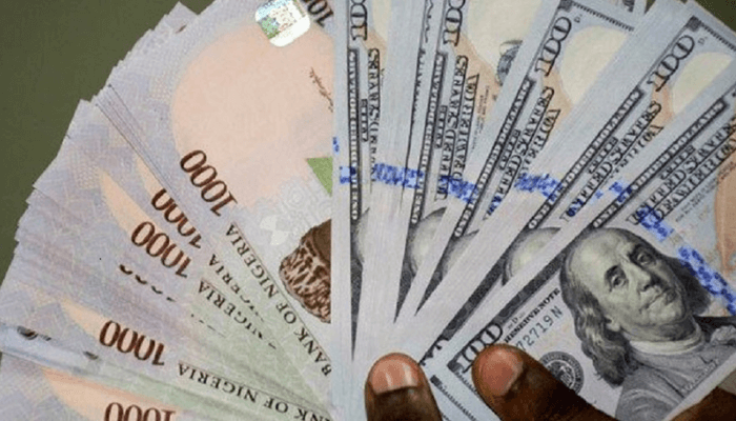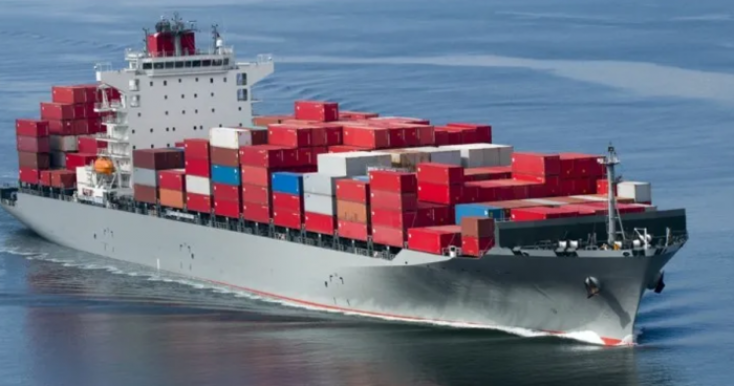
The President of United States, Donald Trump
Nigeria’s economy is likely to hit a fresh downturn if the United States President, Donald Trump, stamped the imposition of an extra trade tariff on countries positioned under BRICS.
Countries in the BRICS bloc include Brazil, Russia, India, China and South Africa.
Worthy to mention that, if the new tariff is implemented, it would bring Nigeria’s import duties to the US to 24 percent, having been slammed with 14 percent levy when Trump first announced the measure on April 2, in what he termed Liberation Day.
Experts have said the 10 percent extra tariff might dampened the country’s export diversification drive.
The fresh threat comes as BRICS leaders at the just concluded summit in Brazil criticized the import tariffs, describing it as indiscriminate.
Recall that Trump had on April 2, announced a broad package of import duties, imposing a 10 per cent baseline tariff on 185 countries, including Nigeria, while upping the duties for various partners whom he described as bad actors, thereby setting off trade war with its key trade partners, especially China.
While unveiling the tariffs, Trump said he could have gone higher by imposing higher tariffs to match what each country charges to US.
He said, “The tariffs will be not a full reciprocal. I could have done that, yes, but it would have been tough for a lot of countries who didn’t want to do that.”
He however, offered three months reprieve to allow countries negotiate, with only United Kingdom and Vietnam now reaching deal with US, while Washington and Beijing agreed to temporarily lower staggeringly high levies on each other’s products.
Trump also warned that he would impose unilateral levies on partners unless they reached “deals” by August 1.
“Any country aligning themselves with the anti-American policies of BRICS, will be charged an additional 10 per cent tariff. There will be no exceptions to this policy,” Trump wrote on his Truth Social platform Sunday.
BRICS members also comprised six coalition members, such as Egypt, Ethiopia, the United Arab Emirates UAE, Iran, Saudi Arabia, and Indonesia, which joined in 2024.
Nigeria became the ninth partner country of BRICS in January 2025, joining Belarus, Bolivia, Cuba, Kazakhstan, Malaysia, Thailand, Uganda, and Uzbekistan.
Nigeria’s economy has taken a tumble since 2023, with headline inflation reaching 28.92 per cent in December 2023 relative to 18.85 per cent in 2022, resulting in massive hardship among the populace. It rose further by 34.2 per cent in June 2024.
It, however, dropped to 27.50 per cent recently, according to the Central Bank of Nigeria, CBN.
The rate has been maintained at this level by the CBN’s Monetary Policy Committee for two consecutive meetings, including the one held in May 2025.
An extra 10 per cent tariff from the US, according to economic experts, could have a high impact on Nigeria’s exports to the US.
Nigeria’s primary export to the United States is crude oil, making up a significant portion of their bilateral trade. Over 90 per cent of Nigeria’s exports to the US consist of crude oil and related petroleum products.
A smaller portion of exports to the US includes items like fertiliser, agricultural commodities, and manufactured goods.
While the US is a major trading partner for Nigeria, Nigeria represents a relatively small percentage of the total trade volume of the US.
Again, Nigeria’s heavy reliance on crude oil exports makes it vulnerable to price fluctuations and shifts in global demand.
The President of Nigeria, Bola Tinubu, while speaking at the BRICS summit recently called for reevaluation of global governance, financial structures, and health systems, advocating a fairer, more inclusive world order that truly reflected the interests of emerging and low-income economies, particularly in Africa.
The President in a statement issued yesterday by his spokesman, Bayo Onanuga, stated that, “Africa has contributed the least to global emissions but suffers the most.”
Tinubu, who aligned Nigeria with the BRICS vision for a more representative global system, said: “The next issues are financial restructuring and reevaluation of the global structure.’’
He noted that developing countries must no longer be bystanders in conversations that shaped the global future.
The President underscored Nigeria’s ongoing commitment to regional and global climate actions, including the African Carbon Market Initiative and the Great Green Wall project.
“Nigeria strongly believes in South-South cooperation. We cannot be passive participants in global decision-making on issues such as debt relief, climate financing and healthcare access,” Tinubu declared.
“The BRICS must not only be a bloc for emerging economies but also a beacon for emerging solutions,” he said.
Reacting to the extra tariff, experts said new tariff would have serious consequences for the economy.
Tunde Abidoye, the Head, Equity Research, FBNQuest Merchant Bank, said the extra tariff would render Nigeria’s non-oil export non-competitive and dampen the nation’s export diversification drive.
“A rise in the reciprocal tariffs by the U.S. on Nigerian exports could curtail FX earned from export proceeds, and result in some pressure in the fiscal space.
‘’However, according to the office of the US trade representative, Nigeria’s export to the US amounted to US5.7billion in 2024. A rise in tariffs could hurt Nigeria’s non-oil exports, rendering them uncompetitive relative to produce from other countries.
‘’As such, it could dampen the export diversification drive, and hinder some of the gains already made,” he said.
Clifford Egbomeade, Public Economic and Communications Analyst, said : “ The proposed extra 10 per cent tariff by President Trump on BRICS-aligned nations, including Nigeria, is a geopolitical and economic inflection point that could deepen Nigeria’s economic vulnerability.
‘’With over 90 per cent of Nigeria’s exports to the United States made up of crude oil and petroleum derivatives, this tariff may not immediately devastate our primary trade channel, given oil’s inelastic demand, but it sends a chilling signal to emerging economies seeking diversified partnerships.
“The more significant concern is the secondary impact: Nigeria’s fragile non-oil exports such as agro-commodities and manufactured goods are already struggling to compete globally.
“This tariff risks stifling those nascent industries, undermining national goals around economic diversification and job creation. Moreover, the psychological toll on investor confidence cannot be ignored.
‘’Foreign direct investment tends to retreat when bilateral relations appear strained, especially with a dominant trade partner like the U.S.
“Politically, this moment tests our diplomatic dexterity. Nigeria must now navigate its BRICS partnership without triggering retaliatory economic consequences, while maintaining sovereign alignment with multilateral frameworks that reflect its developmental priorities.
“The real imperative now is for Nigeria to double down on trade diplomacy, seek strategic carve-outs through bilateral negotiation with the U.S., and accelerate intra-African trade under AfCFTA. The long-term solution lies not in retreating from BRICS or the U.S., but in becoming resilient enough to engage both on our own terms.”





